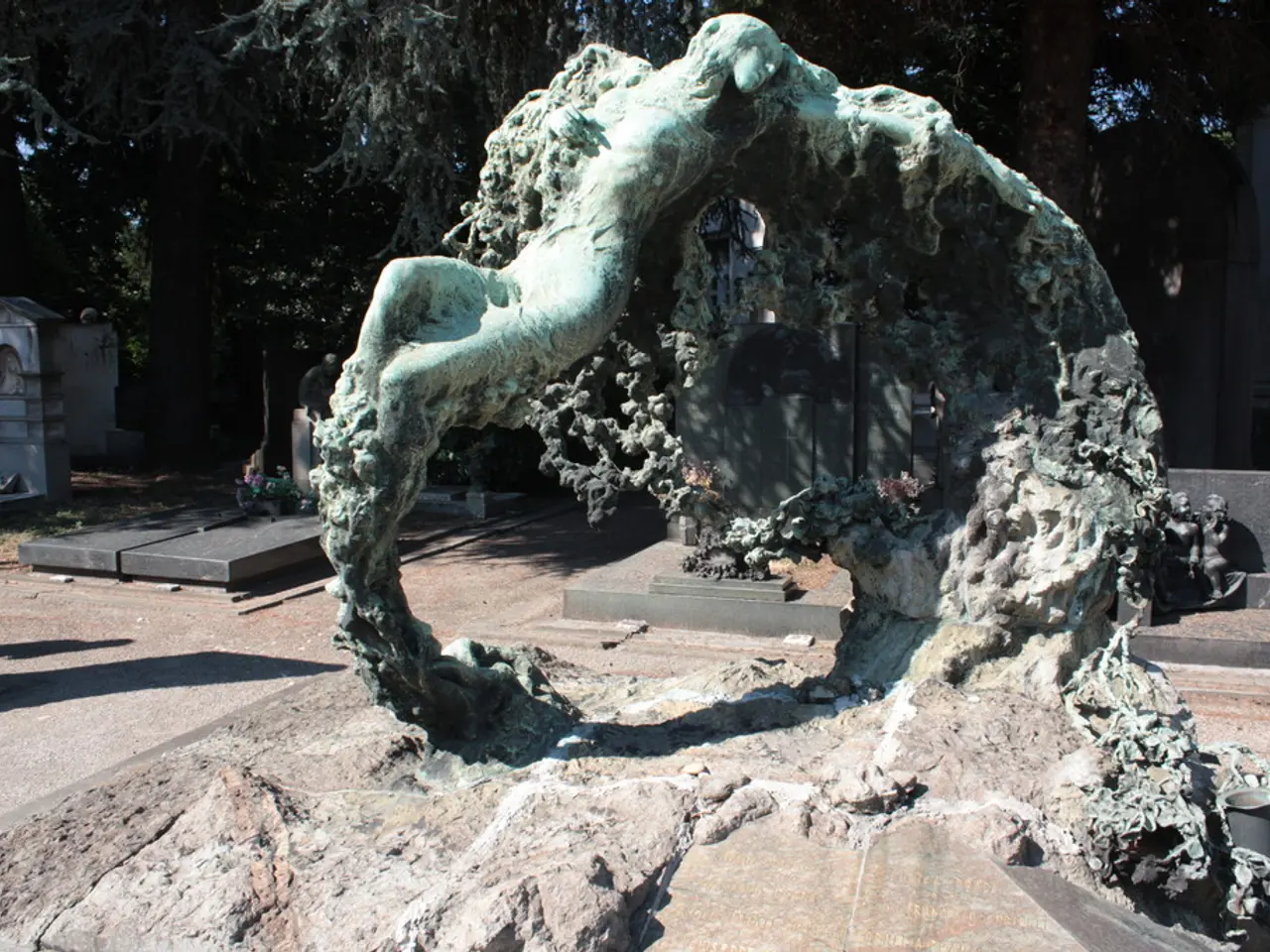Assertion on Post-Mortem Disposal: No Mandatory Burial Required?
In a bid to cater to the growing trend towards environmentally-friendly funeral practices, the Rhineland-Palatinate state government recently reformed its 40-year-old funeral law. This reform, which has garnered praise from the funeral industry, now allows for water burials, in addition to traditional earth and cremation. However, neighbouring North Rhine-Westphalia (NRW) remains cautious about such practices.
Andreas Niehaus, master funeral director and chairman of the Funeral Directors' Association of NRW, has expressed a need for clarification regarding the relaxations in handling urns and the ashes of the deceased in NRW. While water burials are not permitted in NRW, the state has made some changes to accommodate more sustainable options.
### Alternative Funeral Practices
Across Germany, alternative funeral practices, such as green funerals and cremation, are common. In Rhineland-Palatinate, a new reform has made it possible to convert the ashes of the deceased into synthetic diamonds for keepsakes. The reform also abolished the coffin obligation, except for certain religious groups.
In NRW, the removal of ashes for jewelry or gemstone production is prohibited. However, since 2003, it has been possible to scatter or bury ashes without an urn on a cemetery or under certain trees, if the deceased has expressed this wish in writing. Scattering or burial of ashes in one's own garden is also possible under certain conditions in NRW.
### Future Changes
As environmental awareness increases, there is likely to be a growing demand for eco-friendly funeral practices. Regulations might evolve to accommodate these changes, potentially encouraging more sustainable options like aquamation or natural burials. Future changes could also involve updates to legal frameworks to ensure that alternative practices are both environmentally friendly and safe for participants.
### Regional Considerations
The Rhineland-Palatinate reform is commended for being oriented towards the funeral wishes of the people. Niehaus' association's business office was able to incorporate many points into the new draft of the Rhineland-Palatinate reform. In contrast, the NRW Ministry of Health currently sees no need to amend the Burial Act.
### Conclusion
While specific regulations for "water burials" are not detailed, the broader trend towards more environmentally conscious funeral practices suggests that future changes will prioritize sustainability and safety. Policies in NRW and Rhineland-Palatinate would likely align with national and international shifts towards greener funeral services.
Niehaus questions whether a permanent closeness to an urn could become a burden and suggests that this should be discussed. As the state parliament of North Rhine-Westphalia addresses the burial law again in autumn, these concerns may be addressed. Funeral directors in NRW are receiving more inquiries about water burials since the Rhineland-Palatinate reform, indicating a growing interest in more sustainable funeral practices.
In light of the growing interest in health-and-wellness and sustainable practices, Andreas Niehaus, the chairman of the Funeral Directors' Association of North Rhine-Westphalia (NRW), has raised questions about the potential emotional burden of maintaining a permanent closeness to an urn.
As environmental awareness continues to increase, there is potential for future changes in NRW to accommodate alternative, eco-friendly funeral practices, such as those currently being implemented in the field of science, like aquamation or natural burials.




